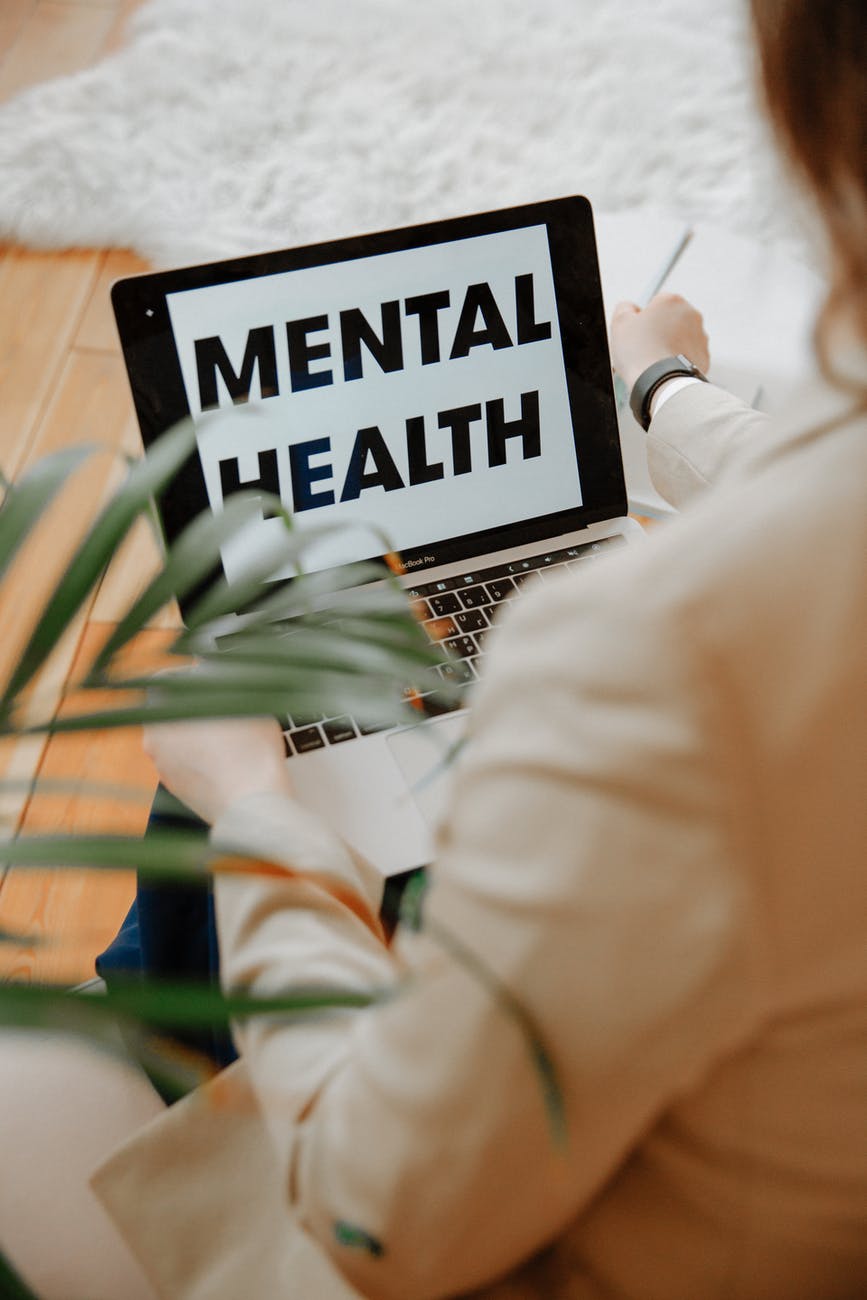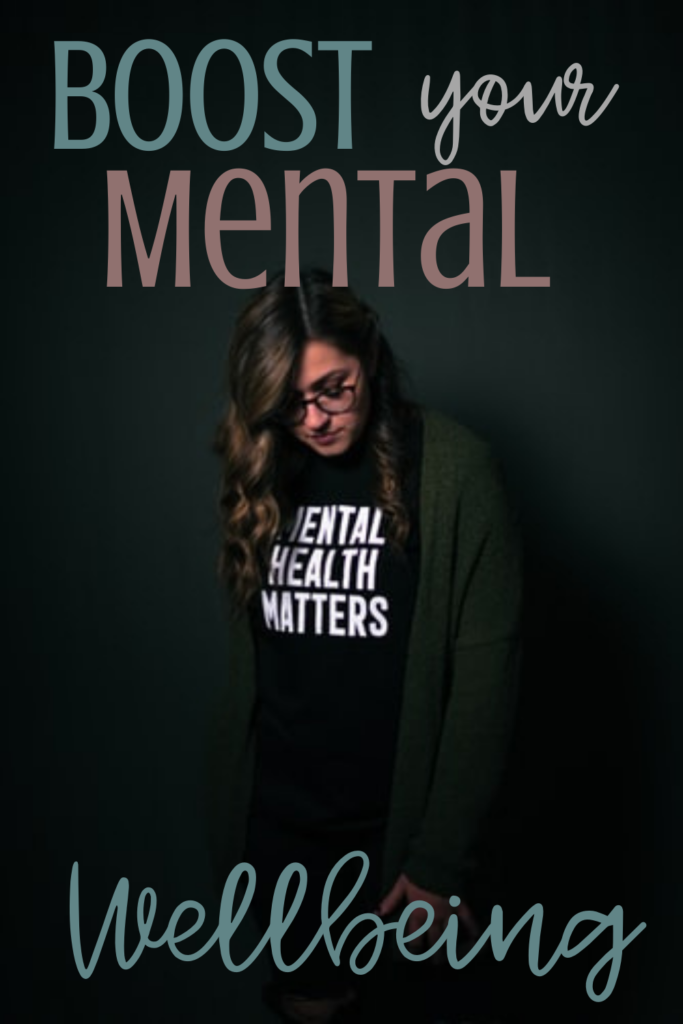Your mental health is as good as your physical health and there are plenty of Effective Ways to Boost Your Mental Wellbeing. Some people refer to mental health as emotional well-being. When you take care of your mental health, you tend to feel good about yourself with elevated confidence and self-esteem.
According to SAMHSA, approximately 20% of U.S adults experience mental disorders yearly. And sadly, most people don’t realize they have mental issues. The diseases occur in various forms and symptoms, making them hard to diagnose.

Photo by Polina Zimmerman from Pexels
Effective Ways to Boost Your Mental Wellbeing
Mental health includes your social, emotional, and psychological well-being. It affects how you feel, act, and think. Your mental health also determines how you deal with stress and your decision-making.
Some factors contribute to mental issues, such as:
- Life experiences
- Brain chemistry or genes
- History of mental problems in the family
Positive mental wellness allows you to:
- Work productively
- Socialize freely
- Cope with stress effectively
- Make a meaningful contribution to the community
- Realize your full potential
Early Warning Signs of Mental Disorders

Image Source: Unsplash
Normally, people with mental problems are always in denial. Others don’t admit to having issues for fear of being misjudged and discriminated against. If you’re not sure, you have problems.
The following behaviors or feelings can be early pointers:
- Feeling anxious
- Feeling like nothing matters
- Self-pity and overreliance
- Sleeping or eating too little or too much
- Using drugs or alcohol more than usual
- Experiencing severe mood swings
- Undecidedness
- Hallucination
- Being reactive
- Harmful thoughts
- Feeling hopeless or helpless
7 Tips to Boost Your Mental Health

Image Source: Unsplash
Fortunately, there are various ways you can take care of your mental wellbeing. And taking care of mental health should not be cumbersome, complicated, or expensive.
Incorporating lifestyle changes with resources like the Step 6 AA worksheet can also offer additional support in addressing alcohol dependency and promoting long-term mental wellness.
Let’s begin.
Get Plenty of Sleep
Just like eating and drinking are important to our bodies, so is sleep. We spend approximately a third of our lives sleeping. Sleeping helps you to recover from physical and mental exertion.
That’s why you must spend some hours a day sleeping. Sleep and health are strongly linked. Studies show that poor sleep can lead to poor health. If you experience sleep disturbances, then you might be depressed.
Addressing sleep disorders is part of taking care of your mental health. Insomnia and other sleep problems can affect your energy, mood, and concentration. Mental health like anxiety and depression go hand in hand with poor sleeping issues.
It’s easier to get sleep when you’re relaxed. Some relaxation methods include taking a warm bath or a milky drink. You can also practice meditation before going to bed.
Alternatively, you can take a Delta 8 cart, which has a calming effect. It’s also an emotional mood booster and great for mental relaxation and clarity.
Change your lifestyle by watching what you eat or drink. Sugary or heavy meals before bedtime can make you uncomfortable. Stimulants like coffee can also make you lose sleep.

Image Source: Unsplash
Avoid Smoking, Drugs, and Alcohol
Heavy drinking obstructs the functionality of chemicals in the brain that are great for mental health. You might feel relaxed after a few drinks, but in the long run, it can affect your mental wellbeing.
The brain relies on an elusive balance of processes and chemicals, and alcohol can impede this balance. A drink can make you feel less anxious and more confident. But as you increase the consumption, negative emotions may take over.
Feelings of regret and anxiety can happen when you sober up. This can lead to psychological symptoms such as agitation, anxiety, and depression.
Heavy drinking is also associated with depression symptoms. It’s also linked to self-harm, psychosis, and suicide. Alcohol will make you lose your behaviors and inhibitions impulsively.
There is a strong association between heavy alcohol consumption suicide attempts, and suicidal thoughts. And just like alcohol, smoking interferes with the brain’s chemical functionality.
Drugs will influence your mental health by impacting thoughts, behaviors, feelings, and mood. Drugs can also trigger psychotic episodes in some people. Other drugs leave you withdrawn, anxious, and in a low mood.
You can stop taking these substances for healthy mental well-being. If you find it hard, get help from professionals or in a rehabilitation center.

Image Source: Unsplash
Eat Healthily: Boost Your Mental Wellbeing
When you’re stressed, you may reward yourself with pizza and cookies to have a two-second emotional lift. Then hours later, you’ll be full of regrets. The vicious cycle continues, and before you know it, you’ve piled pounds.
You cannot separate your body from the brain. Good mental health is a holistic perspective generated from the mind and is visible through physical appearance and behaviors. That’s why eating well will impact your mental health.
Eating healthy food ignites the growth of good bacteria for the production of neurotransmitters. On the other hand, eating junk food can lead to inflammation, hampering the production of neurotransmitters.
A smooth and seamless production of neurotransmitters leads to positive feelings and mood. But when production is poor, your mood might go awry.
Sugar is a major culprit of inflammation. Hence, avoid sugary food and drinks. Ensure you stick to a healthy diet for improved focus and an overall happier outlook. Consume whole foods often. Focus on fruits, vegetables, and foods loaded with antioxidants.

Image Source: Unsplash
Manage Stress
You cannot avoid being stressed once in a while. Life experiences and nature dictate that stress is part of life. However, too much stress is bad for your mental health.
During stressful situations at work or home life, you might feel upset or threatened. This can lead to various physical symptoms like changing the way you behave. It also has effects on your health, well-being, and life.
Some common signs of stress include, but are not limited to:
- Low confidence and self-esteem
- Changing your sleeping habits
- Being constantly worried or anxious
- Difficulty relaxing
- Using illegal drugs, alcohol, and tobacco
- Loss of sex drive
If you experience any or most of these symptoms, you may need to seek help. Look out for what is triggering your stress and identify underlying causes.
You may also review your lifestyle. Cut out toxic people and adopt a healthy lifestyle. You can also get oral therapy from a reliable and reputable therapist. And when you’re pressed with issues, talk it out. Burying your head in the sand will only make the situation worse.
Be Sociable
Hanging out with friends and family can be fun and boost your physical and mental health. Generally, we are social creatures, and we function better when being around others.
Learn to connect with others and create meaningful relationships. Socializing starves off loneliness, sharpens your cognitive skills, and boosts your happiness. In-person socialization is the best, but you can also connect via technology.
Being social will protect your brain from neurodegenerative diseases. Social connection leads to a more healthful lifestyle.
Enjoying close social ties with spouses, relatives, or friends can make you happy and boost your overall life satisfaction.

Image Source: Unsplash
Get Plenty of Sunlight
Perhaps you’re used to hearing that sun rays can be harmful. But do you know the right balance comes with tons of benefits?
Sun’s rays are a great source of vitamin D, vital for your brain and body. Darkness and sunlight lead to the release of hormones in the brain.
The darker lighting makes the brain release melatonin, while sunlight triggers the release of serotonin. These hormones help you sleep better and boost your mood, respectively.
Stay Active: Boost Your Mental Wellbeing
Being active is important in maintaining good physical and mental health. It boosts the release of “feel good” hormones and eliminates low mood. Exercising can also reduce stress, anxiety, laziness, and depression.
You don’t have to be a fitness freak to reap the benefits. Modest amounts of exercise like walking can make a real difference.
The Bottom Line
Maintaining good mental health makes you productive, and boosts your self-esteem and confidence. That’s why you should always be on top of the game. You can practice most, if not all, of the above tips for overall mental well-being.
PIN IT: Boost Your Mental Wellbeing
